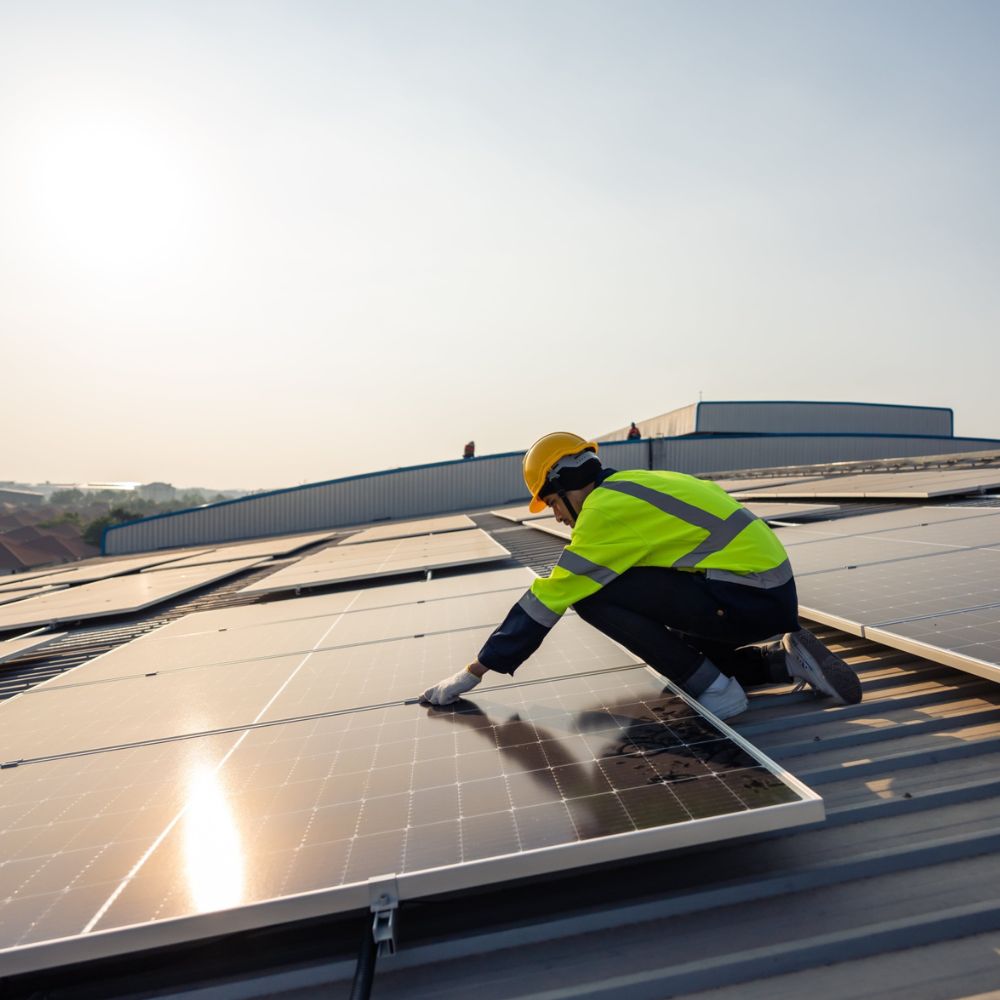Considerations For Installing Solar To Power A Manufacturing Plant
2023-03-27 15:59:47

The push towards renewable energy has been gaining momentum in recent years, and solar power has emerged as one of the most promising sources of clean energy. In addition to being environmentally friendly, solar energy is also becoming increasingly cost-effective, making it an attractive option for manufacturers looking to power their plants. The need for renewable energy sources has become more crucial than ever, especially for manufacturers who require a significant amount of energy to power their operations. Installing a solar solution can provide a reliable and sustainable energy source for manufacturers, which can be beneficial for both the environment and their business.
In this blog post, we will explore the considerations manufacturers should pay attention to when looking to install a solar solution to power their manufacturing plant.
Energy Consumption: Before deciding on a solar solution, it is essential to understand the energy requirements of your manufacturing plant. The amount of energy your plant consumes will determine the size and capacity of the solar system you need to install. A solar panel system that is too small will not provide enough energy, while a system that is too large will be an unnecessary expense. Manufacturers must consider their current energy usage, peak energy usage, and the future energy needs of their plant. The manufacturer should also consider the amount of energy they need to generate from their solar solution to offset their current energy usage.
Roof Space and Location: The next consideration is the available roof space for the solar panel system. The size of the roof and the direction it faces will affect the efficiency and effectiveness of the solar panels. Ideally, the roof should be large enough to accommodate the solar panels and face north to maximize exposure to sunlight. If the roof space is limited or the direction of the roof is not optimal, ground-mounted solar panels may be a better option. The manufacturer should consider the amount of sunlight their plant receives and the direction of the sunlight. The location should be free of obstructions that could cast shadows on the solar panels, such as buildings, trees, or other structures.
Solar Panels: The type of solar panels to install. Manufacturers should consider the efficiency, durability, and cost of the solar panels. It is also important to consider the size of the solar panels to ensure that they can generate the required amount of energy.
Grid Connection: The manufacturer should consider whether they want to be connected to the grid or use a standalone system. A grid-connected system can provide the manufacturer with a backup source of energy, while a standalone system can provide energy independence.
Cost: Manufacturers should consider the cost of the solar panels, installation, and maintenance. They should also consider the cost of energy storage if they choose to use a standalone system.
Incentives: Many governments and utility companies offer incentives for installing solar solutions. These incentives can include tax credits, rebates, and net metering. Manufacturers should research the incentives available to them and factor them into the cost of the solar solution.
Maintenance: Manufacturers should consider the cost and frequency of maintenance, including cleaning the solar panels, checking the wiring and connections, and repairing or replacing any damaged components. Some companies offer a service contract with their systems and this can often be beneficial to the manufacturer's peace of mind.
Environmental Impact: Manufacturers should consider the carbon footprint of the solar solution and the impact on the environment during the manufacturing and disposal of the solar panels.
In conclusion, installing a solar solution can provide manufacturers with a reliable and sustainable energy source. However, careful consideration and planning are required to ensure that the solar solution meets the manufacturer's energy needs while also being cost-effective. Manufacturers should consider their energy requirements, the type of solar panels to install, the location, the grid connection, the cost, incentives, maintenance, and the environmental impact of the solar solution.
You can also read:
How Solar Solutions Can Revolutionise Supply Chain Sustainability in Manufacturing
The role of solar energy in meeting sustainability goals for manufacturing operations


